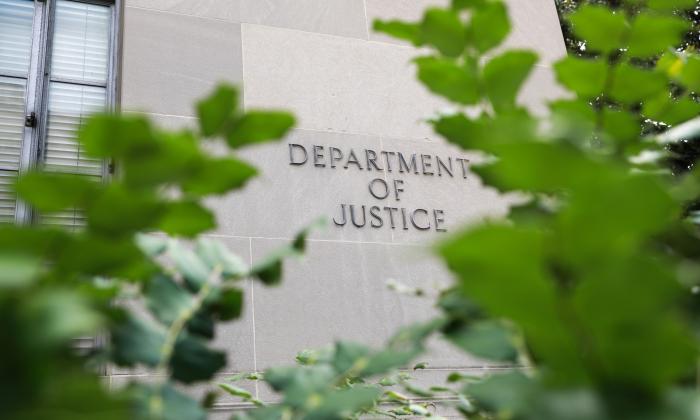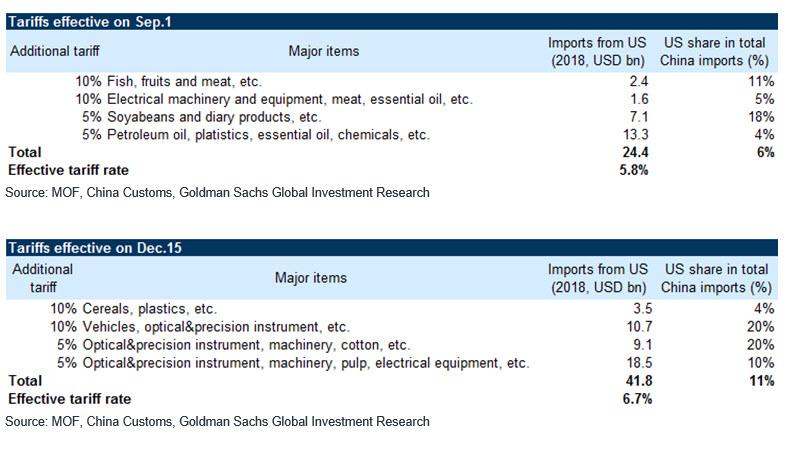Please enjoy the latest edition of Short Circuit, a weekly feature from the Institute for Justice.
New on the Bound By Oath podcast: Why oh why did the Supreme Court decline to incorporate the Fourteenth Amendment against the states? That and more from Professors Michael McConnell of Stanford Law and Gerard Magliocca of the Indiana University Robert H. McKinney School of Law.
- “Because they share a progenitor, a reliable approach to understanding a James Baldwin novel is to compare it, according to a set of criteria, to another work in his oeuvre. Indeed, a thematic reading of Giovanni’s Room is sure to inform such a reading of The Fire Next Time, and vice versa. Not so, however, with respect to the broad set of phenomena we categorize as agency action.” So writes Judge Wilkins of the D.C. Circuit, ruminating on the difficulties of adjudicating admin law in a case where the court’s jurisdiction hinges on the finality of a challenged agency action.
- Sachse, Tex. officers fire on teen who was holding a gun to his head, which the teen then discharged, severely disabling himself. Fifth Circuit (2015): No qualified immunity. SCOTUS (2016): Vacated in light of a decision in a different case we just released. Fifth Circuit (2018): We had it right. Fifth Circuit, sitting en banc, over five separate dissents: Indeed, no qualified immunity.
- Allegation: San Antonio police arrest man who is sleeping in his car that is parked on private property, file false report so that he is charged with DWI. He spends 16 months in pretrial detention before charges are dismissed for lack of probable cause. Fifth Circuit: He filed his false arrest claim too late; the deadline started running at the time of the arrest. But he can sue over the 16-month detention; that deadline started running when the charges were resolved in his favor.
- To prevent the unwarranted removal of Indian children from their families and tribes, Congress passed a law in 1978 permitting a child’s parents, a child’s custodian, and tribal authorities to intervene in state adoption proceedings, in some cases up to two years after a final adoption decree has been entered. The law also establishes placement preferences for foster care and adoptive proceedings that prioritize Indian families over non-Indian families. Non-Indian families: It violates equal protection to impose special adoption rules based on the race of a child. District court: Race-based classifications get strict scrutiny, and the gov’t hasn’t shown the law is sufficiently narrowly tailored. Fifth Circuit: The law relies on a political classification, not a racial one, and thus gets rational basis review, which it satisfies.
- Citing a “mountain of inculpatory evidence,” the Fifth Circuit declined to stay the execution of Texas man for the murder of a college student. He was executed Wednesday.
- Garland, Tex. vocational school is forced to shut down after the feds seize its funds. School: Which violated our constitutional rights; the feds didn’t give adequate notice, among other things, and we are entitled to damages. Feds: Sovereign immunity bars constitutional claims for damages against us. Fifth Circuit: That’s so. While the Federal Tort Claims Act generally waives immunity for tort claims against the federal government, constitutional tort claims are specifically exempted.
- Louisiana prisoner has his skull bashed in with a combination lock, the third attack in two months in which one inmate attacked another with a lock. The inmate’s mother sues but later substitutes the inmate’s two children, whom she’d just learned of. Prison officials: Too late. The children were the proper parties to file suit under Louisiana law, but they were substituted after the statute of limitations had expired. District court: That’s so. Fifth Circuit: Reversed. The case can proceed.
- After her two brothers are convicted of dealing heroin, a Steubenville, Ohio woman takes to Facebook and shares pictures of and derogatory comments about the “bitch ass snitch” who testified against her kin. Which, the Sixth Circuit affirms, is a federal crime, since it’s illegal to retaliate against government witnesses. (Prof. Volokh suspects the law violates the First Amendment, but the woman abandoned that claim.)
- Allegation: While eating dinner, a frail septuagenarian gentleman learns that his girlfriend’s store is ablaze. He rushes to the scene, sees firefighters struggling to open locked door, and approaches a Baxter, Tenn. police officer to give her the keys. The officer throws him to the ground, and a nearby paramedic beats him for good measure. Wait … what? Sixth Circuit: The paramedic is not entitled to qualified immunity.
- Allegation: Teen driver crosses median, causes accident. As he exits the car, the other driver orders him and his two teen passengers to the ground at gunpoint. Yikes! The other driver is an off-duty reserve police officer with the city of Maryville, Tenn. And any reasonable officer would have known not to point guns at people’s heads in these circumstances, holds the Sixth Circuit. No qualified immunity.
- Can Minnesota force videographers to make wedding videos portraying same-sex marriages in a “positive” light despite the videographers’ asserted beliefs to the contrary? Two-thirds of this Eighth Circuit panel think the First Amendment might stand in the way.
- Mexican national is arrested on drug charges, testifies against two co-conspirators, both of whom are members of the notorious Knights Templar cartel. Fearing he will be tortured and killed if sent back to Mexico, he asks to be allowed to stay. Immigration judge: Request denied. Ninth Circuit: Not so fast—he should have been allowed to have his lawyer at the hearing with the immigration judge. Try again.
- In July, the Trump administration announced a new rule, under which aliens who traveled to the United States from their home country are ineligible for asylum if, on the way here, they passed through a third country and failed to seek asylum there. District Court: The new rule violates administrative law; nationwide injunction. Ninth Circuit: It probably does violate administrative law, but we’ve gotta stop throwing these nationwide injunctions around.
- In which the Ninth Circuit reminds us that land can be deemed Indian country regardless of who holds title to it. So, after digging through 166 years of history, we learn that a one-square-mile plot of land known as Section 36 is within the Chemehuevi Reservation and thus San Bernardino, Calif. police cannot enforce California’s traffic laws against tribal members in it.
- Man is arrested at the border with 30 lbs. of cocaine hidden in a spare tire. But did the feds need to get a warrant before searching his phone “forensically”—that is, using software to download call logs and messages from the phone? The Ninth Circuit says yes; they needed (and lacked) reasonable suspicion that the phone would contain digital contraband. Conviction vacated.
- Allegation: Without announcing himself or giving high school student a chance to drop the gun in his hand, a plainclothes LAPD officer fires into a group of students who were making their way to school. He hits one who wasn’t holding the gun. (He lives.) Turns out it was a toy gun with an orange tip. District Court: No qualified immunity. Ninth Circuit: A jury could find the shooting shocks the conscience, but the officer is entitled to qualified immunity because there’s no case on point putting the officer on notice not to accidentally shoot a bystander. The students can sue the officer over being handcuffed and interrogated for five hours, however.
- “MURDER in the second-degree is NOT a crime of violence??? … ‘I feel like I am taking crazy pills.'” So writes Judge N.R. Smith of the Ninth Circuit, dissenting from his colleagues’ interpretation of a federal law that authorizes heightened penalties for using, carrying, or possessing a firearm in connection with any federal “crime of violence.”
- Allegation: Despite a confession and a mountain of evidence linking man to rape/murder of a 14-year old-girl, Jefferson County, Kan. prosecutors convince him to implicate his younger brother, who is convicted and sentenced to life in prison. Fifteen years later, DNA evidence confirms the original confession, and the younger brother is exonerated. (The older brother, racked with guilt, commits suicide, leaving a note in which he again confesses.) Prosecutor: Even if I fabricated evidence, I have absolute immunity for anything I presented at trial. Tenth Circuit: Ah, but the fabrication did not happen at trial. The case proceeds.
- In 2016, a Colorado presidential elector breaks faith and votes for John Kasich instead of the winner of the statewide popular vote (as required by state law). Colorado removes the elector and nullifies his vote. Did that violate the elector’s constitutional rights? It did, says two-thirds of a Tenth Circuit panel. The Constitution provides presidential electors with the right to vote using their discretion, and states do not have the power to remove an elector or nullify an already-cast vote.
- West Valley City, Utah undercover officer shoots, kills woman. The police dep’t determines the shooting was unjustified and discovers that the officer took cash and a “white powdery substance” out of the evidence room and didn’t return it. He’s fired, appeals, is reinstated, and then voluntarily resigns in exchange for $120k payout. Manslaughter charges against him are dismissed for lack of probable cause. Former officer: I was retaliated against because, during the investigation into the shooting, I told internal affairs that misconduct in the undercover unit was endemic. I’m a whistleblower. Tenth Circuit: Not so.
- Extending one’s middle finger in the general direction of a police officer (at about the distance of a football field) gives the officer reasonable suspicion to conduct a traffic stop, says the Court of Appeals of North Carolina (over a dissent).
from Latest – Reason.com https://ift.tt/30AzW2M
via IFTTT

